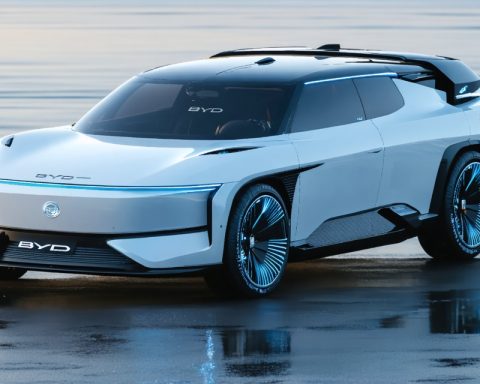- Clean hydrogen emerges as a pivotal element in the quest for carbon neutrality, offering both potential and challenges.
- The focus on hydrogen transcends buzzwords, becoming a critical topic in future business strategies and sustainable technologies.
- Companies engage with both the possibilities and limitations of clean hydrogen, assessing its transformative potential and realistic integration.
- Exploration of clean hydrogen is essential for informed decision-making in technology, economics, and environmental impacts.
- Recognizing the balance of challenges and opportunities, investing in clean hydrogen now could revolutionize the global energy market.
- As a beacon of innovation, clean hydrogen demands attention to drive sustainability and responsibility for the future.
Amidst the swirling debates and bold headlines, one element stands apart, offering both a promise and a challenge—clean hydrogen. Picture a world where power is generated without pollution, a realm where hydrogen emerges as the hero, providing a lifeline to those striving for carbon neutrality.
Hydrogen isn’t just a buzzword thrown around in conference halls. In the boardrooms of the future, it holds the spotlight. Cutting-edge firms dive deep, deciphering not just the possibilities but the gritty realities of harnessing this remarkable element. These companies work on the front lines, exploring hydrogen’s transformative potential while remaining clear-eyed about its current limitations.
Today, clean hydrogen presents an enticing but complex tapestry, with vivid patches of hope interlaced with shadows of skepticism. Leaders in sustainable technology are urged to peer beyond the glittering promises, to delve into the intricate weave of technology, economics, and environmental impact. This exploration isn’t just academic—it’s crucial for strategizing and making pivotal business decisions that shape our collective future.
As these trailblazers navigate the landscape, they unravel not just what clean hydrogen can do, but how it can be realistically integrated into our energy ecosystem. They examine the entire spectrum, from production challenges to the infrastructure needed to support widespread adoption.
The takeaway is clear: While the road ahead may be strewn with challenges, understanding and investing in clean hydrogen now could unlock unparalleled advancements in the global energy market. As we look towards a sustainable tomorrow, clean hydrogen stands as a beacon of both innovation and responsibility—demanding our attention and respect.
The Future of Energy: Unlocking the True Potential of Clean Hydrogen
How Clean Hydrogen is Changing the Energy Landscape
Clean hydrogen, often heralded as the future of sustainable energy, offers the revolutionary promise of power generation without carbon emissions. But as the industry advances, understanding its complexities becomes crucial for both businesses and policymakers. Here’s what you need to know to navigate this dynamic sector.
How-To Steps & Life Hacks: Investing in Clean Hydrogen
1. Understand Production Methods: Learn about key production technologies such as electrolysis, which generates hydrogen from water using renewable electricity. It’s a cornerstone for clean hydrogen production.
2. Explore Funding Opportunities: Many governments offer grants and incentives aimed at promoting green technologies. Investigating these can ease the financial burden of adopting clean hydrogen solutions.
3. Invest in Infrastructure: Consider partnerships or investments in hydrogen refueling infrastructure, which is paramount for widespread hydrogen application, particularly in transportation.
Real-World Use Cases
– Transportation: Hydrogen fuels buses and trains in regions like Europe; recently, Toyota’s and Honda’s hydrogen cars have started to make headway in markets like the U.S. and Japan.
– Power Generation: Countries like Japan are pioneering hydrogen-based power plants, reducing dependence on imported fossil fuels and steering towards renewables.
Market Forecasts & Industry Trends
According to a report by Allied Market Research, the global hydrogen market could reach $201 billion by 2025, driven by a shift towards sustainable energy solutions. Significant growth is expected in segments such as fuel cells and industrial usage.
Reviews & Comparisons
– Hydrogen vs. Electric Batteries: While electric batteries are leading in passenger vehicles, hydrogen fuel cells offer superior range and faster refueling times, making them more suitable for heavy-duty transportation.
Controversies & Limitations
One significant hurdle is the “energy return on investment”; producing hydrogen remains energy-intensive and costly. Critics argue that funding should prioritize direct grid electrification first.
Features, Specs & Pricing
Hydrogen production via electrolysis costs between $4-$7 per kilogram, but ongoing technological advancements and scaling are projected to bring prices down to around $1-$2 per kilogram over the next decade.
Security & Sustainability
Hydrogen is incredibly abundant and, when utilized, emits only water as a byproduct, making it a highly sustainable choice. However, storage and transport remain challenges due to its low energy density in atmospheric conditions.
Insights & Predictions
Emerging innovations suggest that hydrogen will play a pivotal role in sectors where electrification is challenging, becoming increasingly viable as production costs fall and infrastructure expands.
Tutorials & Compatibility
For industries keen on transitioning, understanding the technical integration of hydrogen systems with existing infrastructure is key. This includes investment in compatible technology and training the workforce.
Pros & Cons Overview
Pros:
– No direct emissions
– Versatile in storage and conversion
– Enhances energy security by reducing import dependency
Cons:
– High production costs currently
– Needs significant infrastructure investments
– Complicated and energy-intensive production process
Conclusion: Key Recommendations
For businesses and individuals considering clean hydrogen:
– Stay Informed: Keep abreast of technological developments and market trends to make informed decisions.
– Consider Partnerships: Collaborate with stakeholders across the supply chain to leverage shared resources and knowledge.
– Invest in R&D: Focus on innovations that can reduce the cost and increase the efficiency of hydrogen production and utilization.
For more information, check out International Renewable Energy Agency and US Department of Energy.














